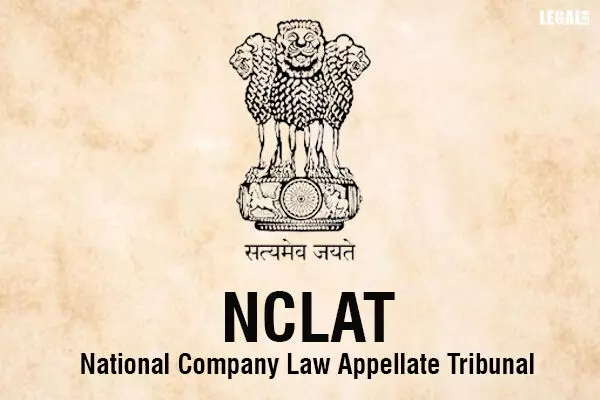- Home
- News
- Articles+
- Aerospace
- Agriculture
- Alternate Dispute Resolution
- Banking and Finance
- Bankruptcy
- Book Review
- Bribery & Corruption
- Commercial Litigation
- Competition Law
- Conference Reports
- Consumer Products
- Contract
- Corporate Governance
- Corporate Law
- Covid-19
- Cryptocurrency
- Cybersecurity
- Data Protection
- Defence
- Digital Economy
- E-commerce
- Employment Law
- Energy and Natural Resources
- Entertainment and Sports Law
- Environmental Law
- FDI
- Food and Beverage
- Health Care
- IBC Diaries
- Insurance Law
- Intellectual Property
- International Law
- Know the Law
- Labour Laws
- Litigation
- Litigation Funding
- Manufacturing
- Mergers & Acquisitions
- NFTs
- Privacy
- Private Equity
- Project Finance
- Real Estate
- Risk and Compliance
- Technology Media and Telecom
- Tributes
- Zoom In
- Take On Board
- In Focus
- Law & Policy and Regulation
- IP & Tech Era
- Viewpoint
- Arbitration & Mediation
- Tax
- Student Corner
- AI
- ESG
- Gaming
- Inclusion & Diversity
- Law Firms
- In-House
- Rankings
- E-Magazine
- Legal Era TV
- Events
- News
- Articles
- Aerospace
- Agriculture
- Alternate Dispute Resolution
- Banking and Finance
- Bankruptcy
- Book Review
- Bribery & Corruption
- Commercial Litigation
- Competition Law
- Conference Reports
- Consumer Products
- Contract
- Corporate Governance
- Corporate Law
- Covid-19
- Cryptocurrency
- Cybersecurity
- Data Protection
- Defence
- Digital Economy
- E-commerce
- Employment Law
- Energy and Natural Resources
- Entertainment and Sports Law
- Environmental Law
- FDI
- Food and Beverage
- Health Care
- IBC Diaries
- Insurance Law
- Intellectual Property
- International Law
- Know the Law
- Labour Laws
- Litigation
- Litigation Funding
- Manufacturing
- Mergers & Acquisitions
- NFTs
- Privacy
- Private Equity
- Project Finance
- Real Estate
- Risk and Compliance
- Technology Media and Telecom
- Tributes
- Zoom In
- Take On Board
- In Focus
- Law & Policy and Regulation
- IP & Tech Era
- Viewpoint
- Arbitration & Mediation
- Tax
- Student Corner
- AI
- ESG
- Gaming
- Inclusion & Diversity
- Law Firms
- In-House
- Rankings
- E-Magazine
- Legal Era TV
- Events
NCLAT rules consolidation of CIRPs not equity jurisdiction; allows Regen Powertech’s plea for consolidated resolution

NCLAT rules consolidation of CIRPs not equity jurisdiction; allows Regen Powertech’s plea for consolidated resolution
States that the exercise was a legal principle intended to maximize the value of assets
The Chennai Bench of the National Company Law Appellate Tribunal (NCLAT) has set aside the National Company Law Tribunal (NCLT) order that dismissed the petition consolidation and simultaneous Corporate Insolvency Resolution Process (CIRP).
While allowing the consolidation and simultaneous CIRP of corporate debtors of the defunct wind turbine manufacturer Regen Powertech Pvt Ltd and its wholly owned subsidiary Regen Infrastructure and Services, the bench stated that CIRP was not an exercise of equity jurisdiction, but a legal principle intended to maximize the value of assets.
The Coram of Justice Venugopal M (judicial member) and Shreesha Merla (technical member) set aside the 2021 order of the NCLT, which dismissed a batch of petitions seeking consolidation and simultaneous CIRP.
Appearing for Regen’s Resolution Professionals, the senior counsel opposed the pleas for consolidation and argued that the combined CIRP was not part of the statutory mandate of the Insolvency and Bankruptcy Code (IBC). The case was not one where equity jurisdiction could be invoked, and the appellants were not operational creditors as they were service purchasers.
The tribunal held that in the present case, consolidation of CIRP could be ordered “not in the exercise of its equity jurisdiction,” but with an intention to “maximize the value of assets and value addition,” which was the main scope of the IBC.
The tribunal held, “Consolidation is based on the principle that the holding and the subsidiary units would be regarded as a ‘single unit’ owing to the nature of business activity. This cannot be construed as a principle in ‘equity’ but a ‘legal principle’. Thus, there is no exercise of ‘equity jurisdiction’ in ordering the consolidation in the facts of the attendant case.”
Senior counsel PS Raman, E Om Prakash, and advocates Vidhya Shankar and NP Vijay Kumar appeared for the appellant-companies.
Regen Powertech and Regen Infrastructure were represented by senior counsel PH Arvindh Pandian and advocates Sathyanarayana, TK Bhaskar, and B Dhanraj.



